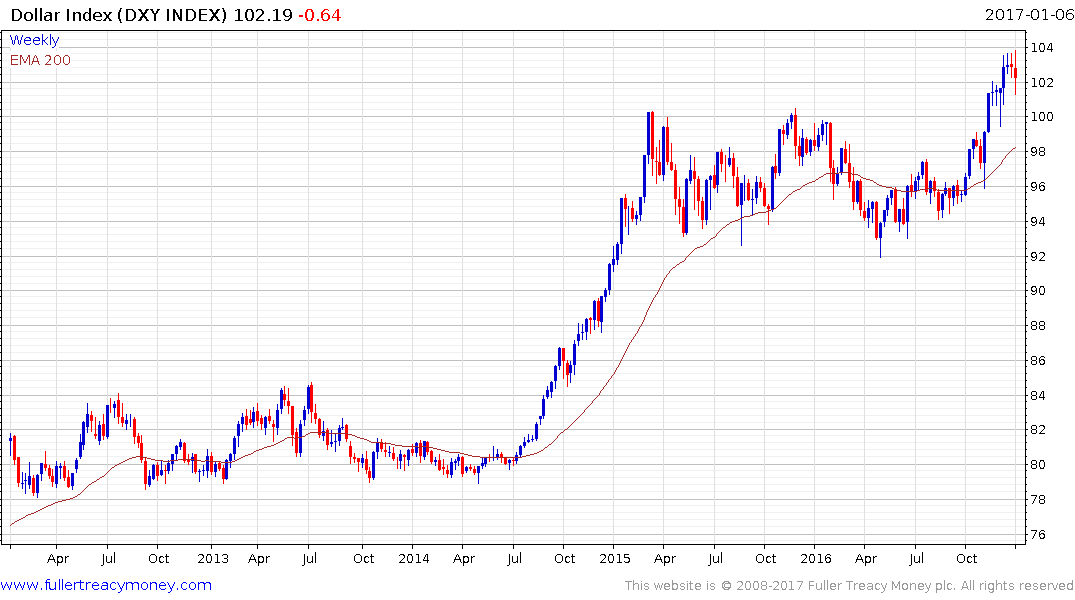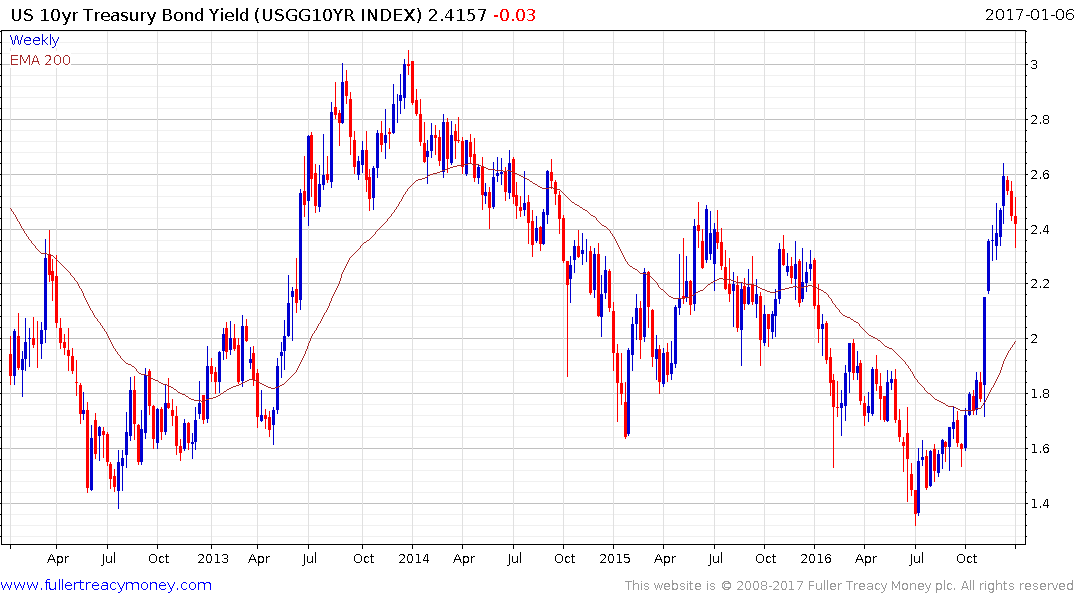U.S. Payrolls Rise 156,000 as Wages Increase Most Since 2009
This article by Shobhana Chandra for Bloomberg may be of interest to subscribers. Here is a section:
The employment report added to data ranging from housing to manufacturing and auto sales in suggesting that President-elect Donald Trump is inheriting a strong economy from the Obama administration. The labor market momentum is likely to be sustained amid rising business and consumer confidence.
Trump, who takes over from President Barack Obama on Jan. 20, has pledged to increase spending on the country's aging infrastructure, cut taxes and relax regulations. These measures are expected to boost growth this year.
But the proposed expansionary fiscal policy stance could increase the budget deficit. That, together with faster economic growth and a labor market that is expected to hit full employment this year could raise concerns about the Fed falling behind the curve on interest rate increases.
The US Hourly Earnings chart was updated today and it broke out. If people are demanding more money for the same work, it is hard to argue inflation is not picking up. Even though rents have increase, insurance premiums are higher and education has been outpacing wage growth for years these figures do not move the needle in how the Fed measures inflation the way wages do.
.png)
The Dollar has been unwinding its short-term overbought condition against a large number of currencies. However this news highlights the fact interest rate differentials are likely to continue to move in the Dollar’s favour. That represents a medium-term tailwind which has not been present for more than a decade. The Dollar Index pulled back earlier this week and, following such a strong performance in the last quarter of 2016, it has room to consolidate above the underlying range.

The broader question of whether the economy requires a $1 trillion stimulus, deregulation of the banking sector and lower taxes when full employment and higher wages are already present is uncomfortable for policy makers at this stage particularly following the US Presidential election result. However if we decried the use of pro-cyclical policies following the crash shouldn’t we also question them today. The potential for inflation to surprise on the upside if pro-cyclical policies are deployed is only now being priced into bond markets and represents a medium-term headwind despite short-term potential for a reversion towards the mean.



